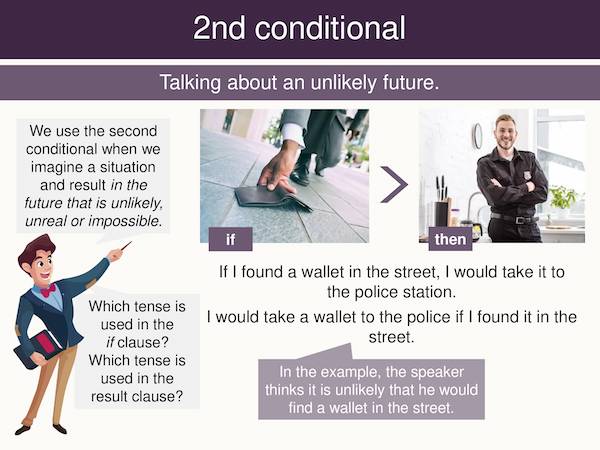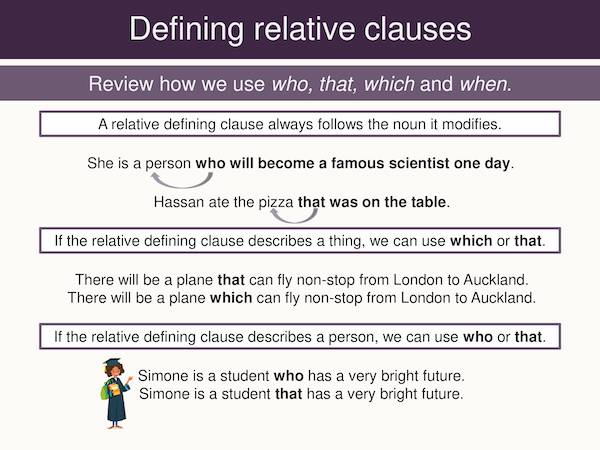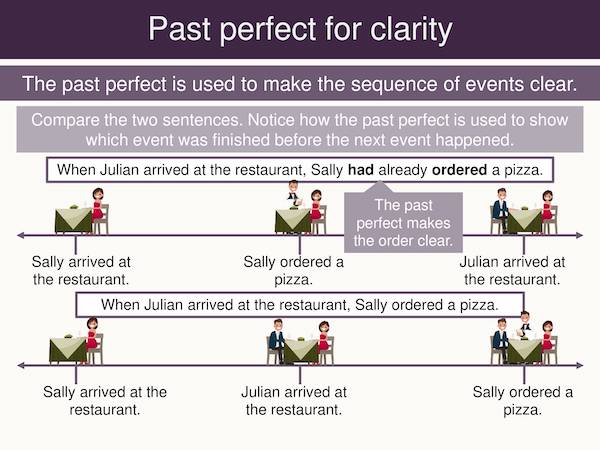5 min read
Share this post

In this post we’ll show you how teaching advanced topics to intermediate ESL students can be fun, easy, and helpful for your students. Teaching advanced topics also gives your learners a huge sense of accomplishment! Here’s Sandra to introduce some advanced topics in our latest content release for the Step-by-Step Curriculum:
.
.
.
.
.
As a teacher of advanced ESL students, there are certain topics I know for sure that my students will not know about when they start studying with me. Three of these topics are conditionals, relative clauses, and the past perfect tense. I understand why they don’t know about these topics — they’re complicated! It’s hard to remember the rules! We don’t use them nearly as much as other tenses and constructions! And all of that makes sense. However, putting off starting these tenses until a student reaches an advanced level has negative consequences for the student:
.
.
The secret sauce to making it work is to go just deep enough. You should introduce your students to the overall concepts, without getting bogged down in all of the complex details. In the following paragraphs I’ll give examples of what to cover (and what to omit) in teaching advanced topics to intermediate ESL students
.
.
Most importantly, the goal is to keep it simple. It might help to start with a basic discussion of what conditionals actually are: A way for us to connect two separate but related events. For example:
By the time your student is ready for the intermediate level, they should already be familiar with the basics of the first and second conditionals. The key here, as we’ll see, is to simplify the concepts
.

.
Many students (and indeed, many teachers), can’t explain the basic mechanics of what a conditional is. That’s where you should start with your students! A conditional sentence describes two events, where the second event is affected by the first event. Simple, right? The next step is to break the conditional statement into two clauses: the if-clause and the result-clause. The result-clause is dependent on the if-clause: If it rains, I will stay home. You can drill this with pre-intermediate students, and they will understand it! It will also save them a big headache when they encounter the conditionals again later.
To teach the second conditional, frame the conversation in terms of unlikely events. One very useful construction to use in this regard is “if I were you.” Another good way to fame it is in terms of dilemmas: “What would you do if you found a wallet on the ground?” By sticking to these simple constructions, you can build confidence in your student that they can do this!
.
.
Teaching relative clauses has the same pitfall as the conditionals — most teachers can’t even explain it adequately, nevermind teach it! Again, let’s keep it simple: a relative clause begins with a relative pronoun. Yes, there are lots of them, but at this level, stick to who, that, which, and where. By using a smaller subset of pronouns, you give your student a chance to recognize the pattern instead of getting lost in the rules.
.

.
.
The past perfect is less of a struggle for teachers, but it can be the most difficult for learners. If your student’s native language is less focused on chronology than English, this will be an entirely new concept.
The key to simplifying the past simple is to stay away from contractions. Of course native speakers will say “I’d already done it” instead of “I had already done it,” but the contraction can add unnecessary confusion. Secondly, don’t overuse it! The past perfect, while necessary, isn’t all that common. It’s often simpler to use a time word like “before” instead of the past perfect.
.

.
.
Coming up with a rubric for teaching advanced topics to intermediate ESL students like this would be time consuming and fraught with pitfalls if you decided to do it yourself (that’s a very complicated second conditional). Thankfully, the Off2Class step-by-step curriculum offers you ready-made lessons, homework assignments, and teacher’s notes to help you get it right, even if it’s your first time. Units 34-36 cover these very topics at appropriate intermediate levels, and if you’re ready to save time lesson planning and help your students with better learning outcomes, you can sign up for a free trial account here.
Share this post



6 Comments
You hit it right on with this topic
Yes, thanks very much!
Great ideas
Thanks Selma!
I have been an EFL teacher for over 25 years and I have done what you now suggest for a long, long time but on a much broader sense. Since our students already know a language (their mother tongue) perfectly well, from day one I encourage my students to pay close attention to the language they speak so that they may discover their use of the different verbal tenses, conditional, independent and subordinate clauses, and so on. Once, as a teacher , you pin point what they have to look out for in their own language, it is only logical that they will want to master those skills in the language that they are trying to learn. Naturally, you teach what they must learn at their level but, the curiosity that one has arisen in their minds will make them more vulnerable to learning those things that they have discovered in their own language.
I think this is a great strategy, thanks Errol!